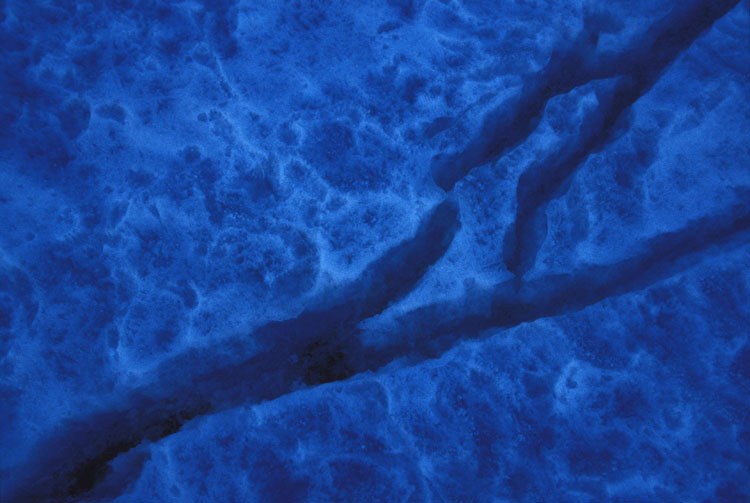After the ice melts from the grain boundaries, the water has to go somewhere. Since the water is more dense than the ice, the whole frozen surface of the lake floats up on the water. As it does this, stresses are created that crack the ice as you can see in this picture. The cracking tends to happen at night when the sun is behind the Kukri Hills and the air cools down significantly. It is a bit unsettling to be camped on a frozen lake, know that since the temperature has been above zero lately there is liquid water just a few feet underneath you, and then hear the ice cracking all night. Luckily, our camp didn't turn into an Antarctic Atlantis.

